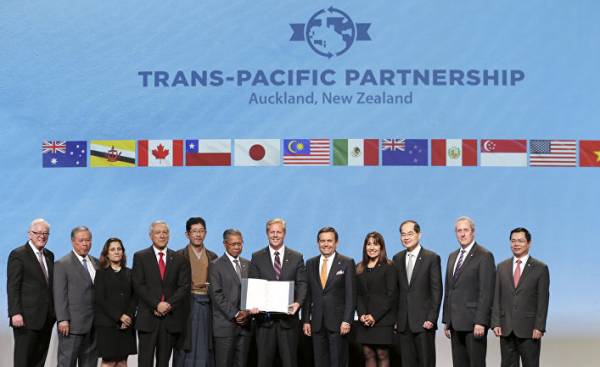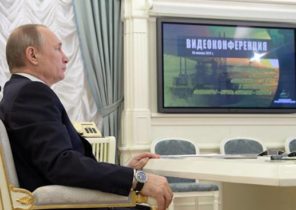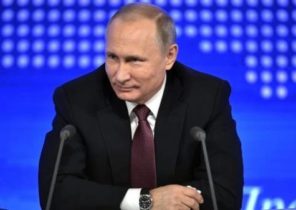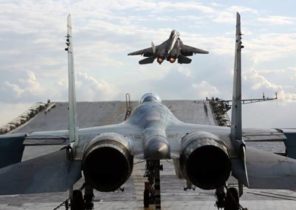
Refusal to participate in the Paris climate agreement. The output from TTP (TRANS-Pacific partnership). Break with NAFTA (North American free trade area). Hints at a possible exit from NATO (North Atlantic Treaty Organization) and WTO (world trade organization). Examples showing that the United States is in the process of “distancing from the world”, more than enough.
When in his speech about the US withdrawal from the Treaty on climate trump suggests, “was elected to represent the citizens of Pittsburgh, not Paris,” he once again confirms the idea that the United States leave the international community in complete isolation.
It is worth noting that this tendency to isolationism is not an invention of the era of trump — it largely describes the very trajectory of development of the USA as a state.
Economist Ian Fletcher (Ian Fletcher), the author of the book “Free trade doesn’t work” (Free Trade Doesn’t Work: What Should Replace it and Why), argues that the United States was originally founded as a protectionist nation.
The first U.S. Secretary of the Treasury Alexander Hamilton, whose portrait adorns the ten dollar banknotes in the late 18th century was trying to protect nascent American industry from the competitive superiority of the British.
Even in the middle of the following century, Abraham Lincoln, first in Parliament and then as the first elected President from the Republican party, saying, “Give us a protective tariff, and we will become the greatest nation on earth.”
If you do not take into account trade, the United States has shaped its diplomacy is largely based on the understanding that the cause of global disaster is Europe and the American continent, Washington has no equal.
These views gave rise to the famous Monroe doctrine, where the preference for Maritime supremacy in the two oceans surrounding us territory. And if you need some interference, it will be only in restoring the balance of power, which is strengthening potentially hostile to the United States political players.
Of course, with the outbreak of the Second world war, everything changed. The United States has become the chief architect of the world, emerged from the war. Since then, Washington was no longer able to leave the international arena. By the way, Churchill saw this as a kind of preconditions for the preservation of the market economy and representative democracy — the main components of the Western world.
Much of what rises up against what the administration of the trump, such as NATO, is a product formed the “American superpower” of the world before the Second world war a similar category to the United States was not used. Other “straitjacket” for the United States appeared in the presidents “globalists” such as Clinton (1993-2000) and Obama (2009-2017), with the emergence of NAFTA, TTP and climate agreement.
Does this mean that isolationism trump is the return of the United States to ourselves? Is it possible to say that, bringing the United States out of a number of political and economic structures that trump is true to his principle to put America first? The desire to move away from major international platforms represents an emerging trend?
I have the impression that there is. Even if the American psyche is still formally has many of the traits of isolationism, which found its full expression in the phenomenon of trump, the US can no more “get out of the world.” This alternative they do not have.
In the field of welfare the United States are the main source of foreign direct investment (FDI), and in the opposite flow — the second largest recipient.
From the point of view of international trade, the country is the largest importer and second largest exporter. We are talking about the state, which has the largest number of multinational companies (MNCs), which originate the largest and most complex global networks increase the value.
As for hard power, the United States has the most dispersed in the world a military contingent and is the only power that can really boast the military capability to conduct operations of conventional forces in the various theaters of war.
It is unnecessary to spend time explaining that the US is the most technically prepared is a nuclear power and that it has all the necessary tools to participate in a cyber war or for intervention by air using unmanned aerial vehicles that are controlled remotely.
And at the level of intangible assets refers to the fortress of American universities, the attractiveness of the industry, the polyphony of public opinion, the independence of journalists or social networking technology — USA organically entered in a global context.
Perhaps it would be better to consider the period of tramp, not as a definite symbol of the decline and isolation of the United States, but rather as a convulsive reaction to the widespread globalization — you can try to influence, but which it is impossible to avoid. Within this globalization, the United States is the most favorable position, and the victim can not call them.







